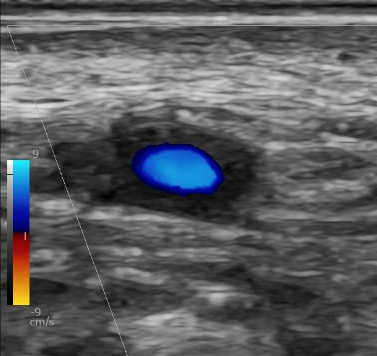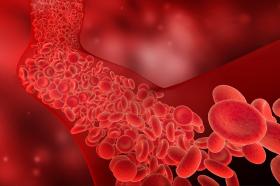
2025 Update on Vasculitis and Polymyalgia Rheumatica & Vasculitis Ultrasound Workshop
Overview
PLEASE NOTE: The Vasculitis Ultrasound Workshop is an optional add-on
The workshop is now FULL
Lectures are still available for registration

A comprehensive update on vasculitis and polymyalgia rheumatica (PMR), with an optional hands-on vasculitis ultrasound workshop. Sessions will discuss the diagnosis and treatment of vasculitis and PMR. The course will feature high-yield talks from world-renowned physician-investigators conducting research on vasculitis and related conditions including giant cell arteritis (GCA), PMR, Takayasu’s arteritis (TAK), and ANCA-associated vasculitis (granulomatosis with polyangiitis [GPA], microscopic polyangiitis [MPA] and eosinophilic granulomatosis with polyangiitis [EGPA]). This course targets the practicing rheumatologist, rheumatology trainee, and allied health professional including nephrologists, pulmonologists, otorhinolaryngologists, neurologists and others interested in learning about important advances in the field of vasculitis and PMR in recent years.
Registration Fees:
| Registration Type | Lectures ONLY | Lectures AND Workshop WORKSHOP IS FULL |
| Faculty & APPs | $199.00 | $499.00 - FULL |
| Fellows/Trainees | $99.00 | $349.00 - FULL |
| Industry | $499.00 | $999.00 - FULL |
Target Audience
This activity is intended for Physicians, Nurses, Nurse Practitioners, Physician Assistants, and other members of the healthcare team.
Learning Objectives
Upon completion of this activity, participants will be able to:
- Become confident in the use of the various imaging modalities available for the diagnosis and longitudinal monitoring of patients with large vessel vasculitis (e.g., vascular ultrasound, advanced vascular imaging [CTA, MRI/MRA, PET]) while understanding strengths, limitations and performance of each modality.
- Employ the ability to create a comprehensive management plan for patients with large vessel vasculitis and PMR including immunomodulation, prevention of treatment-related side-effects, and longitudinal monitoring for disease relapse and disease-related vascular damage.
- Employ the ability to create a comprehensive management plan for patients with small vessel vasculitis including immunomodulation, prevention of treatment-related side-effects, and longitudinal monitoring for disease relapse and disease-related damage.
- Understand when and how to use avacopan for the treatment of GPA and MPA
- Understand the role of plasma exchange for patients with AAV
- Understand when and how to use IL-5 blockade therapy for patients with EGPA
Hands-On Ultrasound Workshop:
Upon completion of this activity, participants will be able to:
- Illustrate the role of ultrasound in the diagnosis of GCA.
- Describe the scanning protocol for large vessel vasculitis and review key considerations.
- Assess sonographic findings in vasculitis.
- Demonstrate how fast-track clinics can improve the care for patients with GCA.
- Perform hands-on vasculitis ultrasound training in small groups under expert faculty supervision.

Additional Information
Massachusetts General Hospital & Mass General Brigham

Program
2025 Update on Vasculitis and Polymyalgia RheumaticaFriday, March 28, 2025 | 7:30am - 6:00pm | |
| 7:30am | Course Registration, Welcome & Breakfast |
| 8:00 | Imaging of the Cranial Arteries for the Diagnosis of Giant Cell Arteritis (US, MRI and PET) |
| 8:40 | How to Use Large Artery Imaging for the Management of Patients with Large Vessel Vasculitis | Kaitlin A. Quinn, MD |
| 9:20 | Q&A Panel: LVV Imaging | |
| 9:50 | Morning Break |
| 10:10 | When and How to Use Eosinophil-targeted Therapies for Eosinophilic Granulomatosis with Polyangiitis | Michael Wechsler, MD, MMSc |
| 10:50 | Current Treatment of Giant Cell Arteritis: IL-6 Blockade and Beyond | John H. Stone, MD, MPH |
| 11:30 | What is the Role of Biologics and Other Glucocorticoid-Sparing Agents in the Treatment of Polymyalgia Rheumatica | Sebastian Unizony, MD |
| 12:10pm | Lunch Break |
| 1:40 | Standard of Care and Future Perspective for Takayasu’s Arteritis | Tanaz A. Kermani, MD |
| 2:20 | Seeking Complete Glucocorticoid-Sparing for Treatment of ANCA-associated Vasculitis | Peter Merkel, MD, MPH |
| 3:00 | To PLEX or not to PLEX? What is the Current Role for Plasma Exchange in ANCA-Associated Vasculitis | Guy Katz, MD |
| 3:30 | Afternoon Break |
| 3:50 | Not Everything is Immunosuppression in Vasculitis. Adjunctive Treatments (glucocorticoid-induced osteoporosis prevention, immunizations, cardiovascular disease prevention) | Naomi Patel, MD, MPH |
| 4:30 | Difficult Vasculitis Cases | Belen Arevalo, MD & Zandra Walton, MD, PhD |
| 5:20 | Panel: Discussion of Treatment of Vasculitis | |
| 5:50 | Conclusion Remarks |
| 6:00pm | Adjourn |
*Please Note: Agendas Are Subject To Change
Vascular Ultrasound WorkshopSaturday, March 29, 2025 | 7:30am - 11:30am | |
| 7:30am | Welcome and Introduction to Vasculitis Ultrasound | Mark A. Matza, MD, MBA, RhMSUS & Minna J. Kohler, MD, RhMSUS |
| 7:35 | Basics of Vasculitis Ultrasound: Machine & Doppler Settings, and Protocol | Mark A. Matza, MD, MBA, RhMSUS |
| 8:05 | Live Demonstration: Temporal and Axillary Artery | Mark A. Matza, MD, MBA, RhMSUS |
| 8:15 | Hands on Vasculitis Ultrasound Scanning: Temporal Arteries | |
| 9:15 | Morning Break |
| 9:30 | Pitfalls, Tips, and Tricks in Vasculitis Ultrasound | Mark A. Matza, MD, MBA, RhMSUS & Minna J. Kohler, MD, RhMSUS |
| 9:45 | Clinical Cases in Vasculitis Ultrasound | Mark A Matza, MD, MBA, RhMSUS |
| 10:00 | Hands on Vasculitis Ultrasound Scanning: Axillary and Temporal Arteries | |
| 11:30am | Adjournment of Vascular Ultrasound Workshop |
*Please Note: Agendas Are Subject To Change
Venue
Accommodations:
- Room Blocks:
- There were limited room blocks for attendees of the course at the Kimpton Marlowe Hotel (venue) but these are now fully booked.
- The Wyndham Hotel Beacon Hill (20-minute walk/5-minute drive from venue).
For instructions on booking at the preferred rate in either room block, please contact davodea@mgh.harvard.edu.
- Other Lodging Options:
- Holiday Inn Express & Suites Boston - Cambridge (10-minute walk)
- Hampton Inn Boston/Cambridge (10-minute walk)
- Fairfield Inn & Suites Boston Cambridge (10-minute walk)
- The Kendall Hotel (15-minute walk)
- The Boxer Boston (5-minute drive)
- citizenM Boston North Station hotel (5-minute drive)
- Meco Hotels (5-minute drive)
Faculty
Course Directors
 | Sebastian H. Unizony, MD Rheumatology Vasculitis Program. Dr Unizony’s main academic interests include the use of clinical and translational research methods to advance the treatment in systemic vasculitides and related disorders including giant cell arteritis and polymyalgia rheumatica. He is a member of the Pan American League of Associations for Rheumatology (PANLAR) vasculitis group that has published treatment guidelines for giant cell arteritis, Takayasu’s arteritis and ANCA-associated vasculitis. A list of his publications can be found in the following link: https://pubmed.ncbi.nlm.nih.gov/?term=Unizony+S&sort=date |
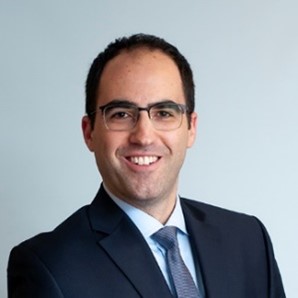 | Mark A. Matza, MD, MBA, RhMSUS |
 | Minna J. Kohler, MD, RhMSUS Minna Kohler, M.D. RhMSUS is the founder and Director of the Rheumatology Musculoskeletal Ultrasound (MSKUS) Program at MGH. She completed a clinical/research rheumatology fellowship at Yale University School of Medicine. Prior training includes 3 years of general surgery residency, 2 years of the NIH-sponsored fellowship in Image-Guided Therapy in the Department of Radiology at Brigham and Women's Hospital, and internal medicine residency at Lahey Clinic. Dr. Kohler received diagnostic/ interventional MSKUS training in the Yale MSKUS program for surgeons in the Department of Orthopaedics/Rehabilitation. She developed the MGH rheum ultrasound training curriculum and actively teaches MSKUS to MGH Rheumatology, IM, & Emergency Departments, Spaulding PM&R residents, and Harvard medical students. Dr. Kohler serves as key faculty for MGH rheumatology and the Spaulding PM&R residency programs (rotation director for rheumatology and ultrasound). She also serves as adjunct faculty to the MGH CURE (Center for Ultrasound Research Education) in the Department of Emergency Medicine. Dr. Kohler is a graduate of the USSONAR (Ultrasound School of North American Rheumatologists) program and serves as a faculty mentor for training ultrasound to rheumatologists nationally. She is the director of the MGB MSKUS at the POC CME course and has been a pioneer in promoting ultrasound training through the American College of Rheumatology (ACR). She has been an invited speaker and instructor for numerous courses nationally and internationally. Dr. Kohler has educational/research interests in point-of-care ultrasound related to arthritis, tendinitis, bursitis, vasculitis, and other rheumatic diseases. Other clinical and research interests include osteoarthritis, crystal arthritis (gout, pseudogout), psoriatic arthritis, seronegative spondyloarthropathies, rheumatoid arthritis, and immunotherapy related or cancer-related inflammatory arthritis. |
Faculty
 | John Stone, MD, MPH Research: I co-founded the Vasculitis Center at Johns Hopkins University and directed a multi-center, randomized clinical trial in Wegener's granulomatosis. The results of this trial were published in The New England Journal of Medicine (2005). I am currently the Co-PI of a second multi-center clinical trial in ANCA-associated vasculitis: Rituximab in ANCA-Associated Vasculitis HRAVe). The primary results of this trial were recently published in The New England Journal of Medicine (2010). My most current research interest pertains to an emerging disease known as IgG4-related systemic disease (IgG4-RSD). My research group at the MGH made the seminal observation that rituximab therapy leads to the targeted reduction of the IgG4 subclass of immunoglobulins in this disorder.Teaching: I gave the Sir James Cameron Lecture at the Royal College of Physicians (Edinburgh) in 2003. I delivered the Dunlop-Dottridge Lecture at the Canadian Rheumatology Association (2007) and gave the Woodbury Lecture at Dalhousie University in 2010. I have written and edited a textbook entitled A Clinician’s Pearls & Myths in Rheumatology (Springer). Two editions of this book have been published, most recently in 2023. |
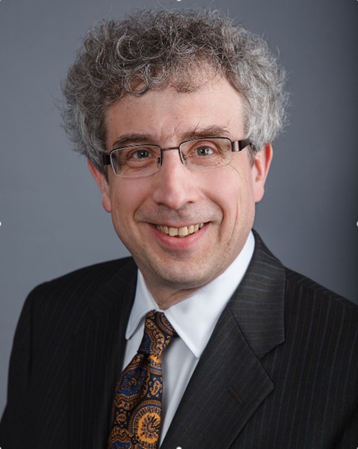 | Peter Merkel, MD, MPH Dr. Merkel is the Chief of Rheumatology and a Professor of Medicine and Epidemiology at the University of Pennsylvania. Dr. Merkel is an internationally recognized research and clinical expert in vasculitis, scleroderma, and other systemic autoimmune diseases, and is an author on over 400 scientific publications. He is the Principal Investigator of the Vasculitis Clinical Research Consortium (VCRC) and the Vasculitis Patient-Powered Research Network (VPPRN), two leading international research infrastructures for clinical investigation in vasculitis. Dr. Merkel’s research focuses on clinical trial design and conduct, outcome measure development, clinical epidemiology, genetic epidemiology, and biomarker discovery. Dr. Merkel received his MD from Yale University, his MPH from Harvard University, completed his residency training at the Hospital of the University of Pennsylvania and his fellowship at the Massachusetts General Hospital/Harvard Medical School. He has been a faculty member at Harvard Medical School, Boston University School of Medicine, and now the University of Pennsylvania School of Medicine. Dr. Merkel has received the majority of his research support from the National Institutes of Health, the US Food and Drug Administration, the Patient-Centered Outcomes Research Institute, with additional funding from industry sources and private foundations. |
 | Michael E Wechsler, MD, MMSc Michael E. Wechsler is Professor of Medicine in the Division of Pulmonary, Critical Care and Sleep Medicine at NJH in Denver, Director of the National Jewish Health (NJH)/Cohen Family Asthma Institute and Associate Vice President for Innovation and Industry Relations at NJH. In addition to clinical work in pulmonary & critical care medicine, Professor Wechsler’s research focuses on clinical and translational asthma with emphasis on clinical trials in asthma, novel asthma therapies, bronchial thermoplasty, asthma pharmacogenomics, and management of eosinophilic granulomatosis with polyangiitis (i.e. Churg-Strauss Syndrome, CSS). He has led studies focusing on novel biologic agents for asthma and related diseases, including benralizumab, dupilumab, mepolizumab, reslizumab, tezepelumab and depemokimab. He has published more than 325 manuscripts relating to asthma, EGPA and eosinophilic lung diseases and has been an investigator in over 60 clinical trials. He was a member of the Steering Committee and site Principal Investigator of the NIH-sponsored Asthma Clinical Research Network (ACRN/AsthmaNet), a multicentre asthma clinical trials consortium, and currently serves as the PI of the Denver site of the Precision Intervention in Severe/Exacerbating Asthma (PRECISE) network. A member of the American Society of Clinical Investigation and the Association of American Physicians, he has participated in many different task forces related to the study of eosinophilic lung diseases that were sponsored by the NIH, the FDA, the European Respiratory Society and the International Eosinophil Society. He is currently Associate Editor of the journal Chest and has served as Associate Editor of the journal Allergy and on the editorial board of the European Journal of Clinical Investigation. |
 | Tanaz A Kermani, MD Dr. Tanaz Kermani is the Founder and Director of the multi-disciplinary Vasculitis Program at UCLA. She completed her residency and rheumatology fellowship at the Mayo Clinic followed by an additional 2 years of training in vasculitis as part of the NIH-sponsored Vasculitis Clinical Research Consortium. She joined the UCLA Health's Division of Rheumatology in 2012 where she is a full-time clinician. She is an active researcher with projects that include international collaborative efforts in vasculitis. Her primary research interest is in large-vessel vasculitis where she has published extensively. |
 | Kaitlin A. Quinn, MD Kaitlin Quinn M.D. received her medical degree from New York Medical College. She completed her internal medicine residency training and rheumatology fellowship training at Georgetown University Hospital. She subsequently completed a two-year Vasculitis Clinical Research Consortium - Vasculitis Foundation Fellowship within the NIAMS Vasculitis Translational Research Program where she focused on vasculitis from a clinical and research perspective. Dr. Quinn is board certified in Internal Medicine and Rheumatology. Dr. Quinn’s research interests include clinical research in many different types of vasculitis. Primarily, her research has focused on imaging in large-vessel vasculitis, including giant cell arteritis and Takayasu’s arteritis. She has also conducted studies in ANCA-associated vasculitis and has an interest in the development of outcome measures in vasculitis. She is involved in the OMERACT Vasculitis Working Group. |
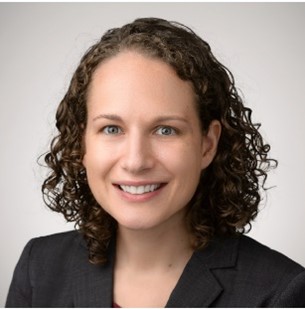 | Zandra E. Walton, MD, PhD |
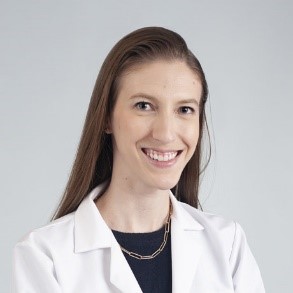 | Naomi Patel, MD, MPH |
 | Belen Arevalo, MD Dr. Belen Arevalo is a board-certified rheumatologist. She received her medical degree from the University of Azuay Medical School in Ecuador and completed her medicine residency at Mount Sinai Morningside/West in New York where she served as chief resident for an additional year. She completed her rheumatology fellowship at The University of Chicago and following her fellowship she joined the Rheumatology Department at Massachusetts General Hospital. In addition to seeing patients with general rheumatologic conditions, Dr. Arevalo’s clinical interest includes vasculitis which stems from significant exposure to patients with various vasculitides and having been involved in research projects studying the cardiovascular risk in different rheumatic conditions including vasculitis. She is part of the Vasculitis Program at MGH. |
 | Guy Katz, MD Dr. Guy Katz is a rheumatologist and clinician-investigator in the Division of Rheumatology, Allergy, & Immunology at the Massachusetts General Hospital (MGH). He is a member of the MGH IgG4-Related Disease Center, Rheumatology Vasculitis Program, and Rheumatology and Allergy Clinical Epidemiology Research Center. He received his medical degree from the Icahn School of Medicine at Mount Sinai and completed a residency in internal medicine at the Thomas Jefferson University Hospital followed by a fellowship in rheumatology at the Massachusetts General Hospital. Dr. Katz specializes in the treatment of systemic immune-mediated diseases including IgG4-related disease and systemic vasculitis. He conducts clinical epidemiology and translational research on IgG4-related disease and ANCA-associated vasculitis, with particular interests in mechanisms leading to organ damage, long-term disease outcomes, and management strategies that balance disease control and treatment-associated harm. He has serves as a principal investigator and sub-investigator on clinical trials in multiple diseases, including IgG4-related disease, ANCA-associated vasculitis, and systemic lupus erythematosus. In addition to research and clinical care, Dr. Katz has been actively involved in the American College of Rheumatology, previously serving on the Fellows-in-Training Subcommittee of the Committee on Training and Workforce, the Annual Meeting Planning Committee, and the Committee on Ethics and Conflicts of Interest. |
Instructors
 | Hamid Shokoohi, MD, MPH Director, Emergency Ultrasound Fellowship, Director, Emergency Ultrasound Research, Massachusetts General Hospital; Associate Professor of Emergency Medicine, Harvard Medical School |
 | Myma Albayda, MD, MPH Associate Professor of Medicine, Director, Rheumatology Fellowship Program, Director, Musculoskeletal Ultrasound and Injection Clinic, Johns Hopkins University |
Accreditation
In support of improving patient care, Mass General Brigham is jointly accredited by the Accreditation Council for Continuing Medical Education (ACCME), the Accreditation Council for Pharmacy Education (ACPE), and the American Nurses Credentialing Center (ANCC), to provide continuing education for the healthcare team.
Credit Designation Statements
AMA PRA Category 1 CreditsTM
Mass General Brigham designates this live activity for a maximum of 12 AMA PRA Category 1 Credits™. Physicians should claim only the credit commensurate with the extent of their participation in the activity.
Available Credit
- 12.00 AMA PRA Category 1 Credit™
- 12.00 Participation
Register/Take course
Price
| Registration Type | Lectures ONLY | Lectures AND Workshop WORKSHOP IS FULL |
| Faculty & APPs | $199.00 | $499.00 - FULL |
| Fellows/Trainees | $99.00 | $349.00 - FULL |
| Industry | $499.00 | $999.00 - FULL |
Cancellation Policy:
Registrations cancelled on or before March 14, 2025 will be refunded, less a $40 administrative fee. Registrations cancelled after March 14, 2025 will not be refunded.
Contact mgbcpd@mgb.org if you require assistance in cancelling your online registration.

 Facebook
Facebook Twitter
Twitter LinkedIn
LinkedIn Forward
Forward